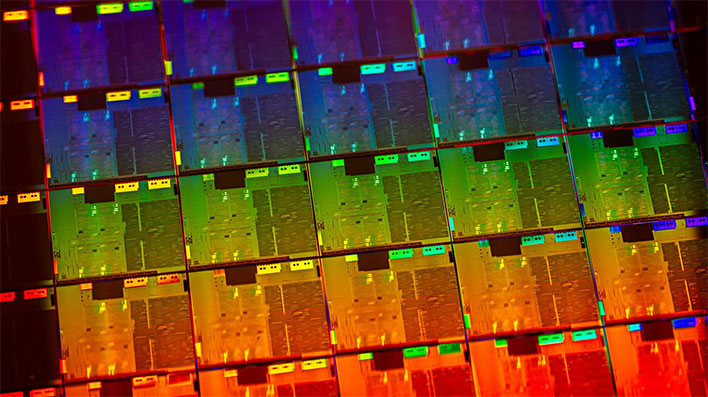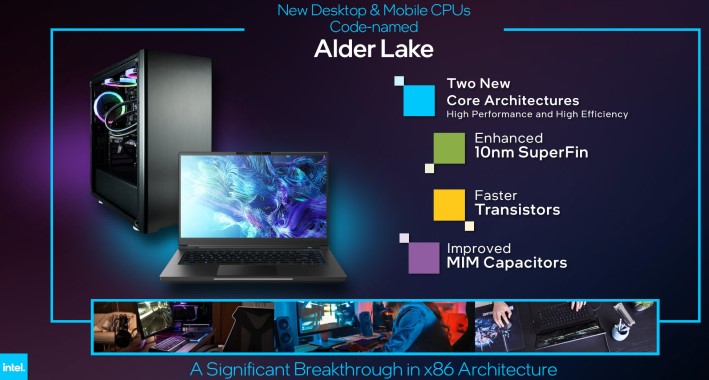Intel Has Resolved Its 7nm Chip Woes, 12th Gen Alder Lake On Track For 2H 2021 Ramp
Intel’s struggles to move beyond 14nm for the entirety of its product stack are well-known, and the company announced in July 2020 that its next-generation 7nm process node had been delayed. "7nm-based CPU product timing is shifting approximately six months relative to prior expectations," said Intel at the time. "The primary driver is the yield of Intel's 7nm process, which based on recent data, is now trending approximately twelve months behind the company's internal target."
However, we can now report that Intel is finally back on track with its 7nm process node, which the company confirmed yesterday during its Q4 earnings call. Current CEO Bob Swann referenced the July warning about the 7nm process node, but added, "Since that time, we have made tremendous progress on our 7nm technology. When 7nm was originally defined, the flow contained a particular sequence of steps that contributed to the defect issue we discussed in July."

More importantly, Swann added, "By re-architecting these steps, we've been able to resolve the defects."
While it's great to hear that Intel has resolved the hiccups that stalled its 7nm development, there are no changes to the revised roadmap that was outlined in July 2020. Intel is still adhering to the 6-month delay, which means that its first 7nm product won't arrive until 2023, which is still two years out. For reference, rival AMD has been pushing 7nm processors since 2019.
The company says that it is also spending capitol on 7nm as it prepares for next-generation tools. "We are seeing some higher 7nm costs impacting our outlook for gross margin and we are getting the benefit from NAND as you talk about,” said Intel Chief Financial Officer George Davis. "But we're also seeing more savings in 10nm costs as we're making more progress there than actually we were even expecting. It's accelerating, so we're pleased with that."

Even though incoming CEO Pat Gelsinger isn't supposed to take the helm until mid-February, he was also on the call to give some insight into the company's future roadmap. "I've had the opportunity to personally examine progress on Intel's 7nm technology over the last week," said Gelsinger.
"Based on initial reviews, I am pleased with the progress made on the health and recovery of the 7-nanometer program. I am confident that the majority of our 2023 products will be manufactured internally." There has been talks that Intel is looking to partner with TSMC to offload at least some chip production in the coming years. Recent rumors have talked about leveraging TSMC's 5nm process node as soon as this year.
"As we said, we believe the majority will be on our 7-nanometers, but we will be increasing the use of foundry capabilities in that timeframe as well," Gelsinger continued.

On the topic of Alder Lake, which is Intel's next-generation CPU architecture that will underpin both desktop and mobile processors, the company reaffirmed a late 2021 ramp.
As we look ahead, we are excited about the capabilities we are bringing to customers with Alder Lake for mobile and desktop PCs and Sapphire Rapids for the data center. These products take advantage of our Enhanced SuperFin process technology and numerous architectural improvements and both are broadly sampling to customers.
We will qualify Alder Lake desktop and notebook for production and begin our volume ramp in the second half of 2021 and we expect production qualification of Sapphire Rapids at the end of 2021.
12th generation Alder Lake processors will be built on a 10nm SuperFin process. The shift to 10nm will be a first for Intel's desktop processors, which has been on the 14nm process node since 2015.


